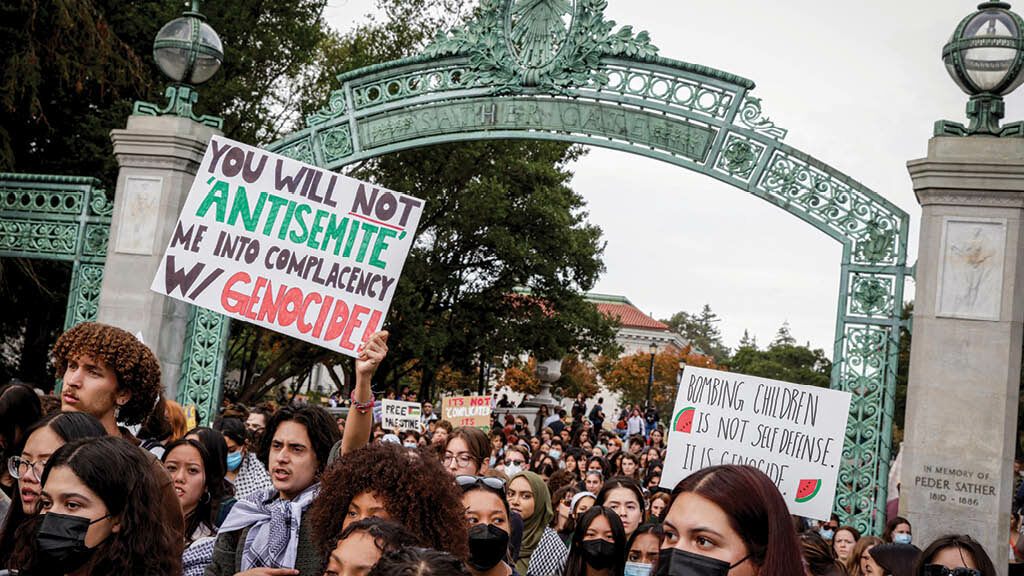Appelfeld in Bloom
Great writers often repeat themselves, and Israeli author Aharon Appelfeld is no exception. A child survivor of the Holocaust, he has published more than thirty books—among them novels, short story collections, and a memoir—through which he explores the traumas of his past, sometimes directly, often less so.
Appelfeld was eight years old when the Germans invaded Romania, killing his mother and deporting him and his father to a Ukrainian labor camp. When the two were separated, the young boy escaped the camp. For two years, he wandered the forests, subsisting on wild fruit and berries. During winter, he passed himself off as a Ukrainian orphan in order to find work in exchange for meager shelter and food. For a time he worked as a servant for a temperamental prostitute; later, he joined the Soviet army, assisting in the military kitchen. After the war, he traveled to Italy with other survivors, and from there to Palestine, where he arrived, alone and uneducated, at the age of 14.
Appelfeld’s work draws heavily on his childhood experiences. Although he writes in Hebrew, his works are all set in Europe, before or during the war. Always, the language is bare, even plain; observations and ideas are communicated in a simple, childlike voice. In Blooms of Darkness, the protagonist Hugo lives in an unidentified ghetto with his mother (his father has been taken away). From his apartment window, he watches the deportations, and observes desperate Jews grope in the dark as they try to make sense of what is happening around them and search for some means of escape. In these harsh surroundings, the boy has “learned not to ask” but “to listen instead to the silence between the words.”
Many of Hugo’s friends have been sent to the mountains with peasants who agree to hide them in exchange for hefty bribes. But when the peasant that Hugo’s mother had reserved fails to show up, she entrusts her only child to Marianna, a prostitute and old friend who has agreed to hide the boy. Mother and son escape the ghetto in the thick of night, and make their way through the suffocating sewer pipes. At the brothel, Hugo’s mother instructs her son to do as he is told, and not to ask questions. When she leaves, the boy watches as his mother is “swallowed up in the darkness.”
Hidden away in a closet in Marianna’s room, Hugo invents an imaginary world filled with people from his past—teachers, friends, and relatives. But his only actual friend is Marianna, and the relationship, while not exactly equal, is mutual. He sees her as a beautiful, generous savior; she sees him as the only male not trying to take advantage of her. In the end, Hugo loses his virginity to a drunken Marianna at the tender age of 12. Appelfeld’s descriptions of the boy’s first sexual encounter are restrained, almost to a fault, and Jeffrey M. Green’s excellent translation evokes the reticence that is typical of Appelfeld:
More than once in his life, Hugo will try to reimagine that drunken night. He will call up the thick darkness that was infused with perfume and brandy, and the pleasure that was mixed with a fear of the abyss. But not a word passed between them, as if words had become extinct.
Appelfeld’s tentative relationship with words derives from his personal history. As a young émigré to Palestine, he quickly shed the languages of his childhood (German, Romanian, Ukrainian) and of his time during and after the war (Yiddish and Italian), and began writing in Hebrew before he was really “rooted in the language,” making his earliest attempts “more a kind of stuttering than writing,” the author once said. While Hebrew remains his only written language, Appelfeld, who resides in Jerusalem and is one of Israel’s most celebrated authors, still sometimes feels as if “what I’m writing is somehow not my own.”
In place of a native language, the writer holds onto his memories—which, for him, are physically palpable sensations. “The cells of my body apparently remember more than my mind,” Appelfeld wrote in his memoir, The Story of a Life.
Hugo, too, learns to rely on memory, and “records in his heart everything his eyes see.” In the ghetto, he takes in “the people who enter the house in a panic and spit out a horrifying bit of news” and those who “sit by the table and don’t utter a word.” Later, in Marianna’s closet, Hugo listens closely to the goings on beyond the door.
Often, Hugo imagines reuniting with his parents. But the Russian victory—after the boy’s nearly two years in hiding—brings with it new worries. Marianna, having slept with German soldiers, is accused of collaboration, and it is this cruel irony that ultimately separates her from the boy.
This isn’t the author’s first attempt at capturing the experiences of the Holocaust through the eyes of a child. The Story of a Life, his critically acclaimed memoir, recreates the past by recalling the author’s own idyllic childhood in Czernowitz and the ways in which it was so suddenly and irreversibly shattered. Similarly, the novel Tzili depicts a young girl “devoid of charm and almost mute,” who is left behind when her family escapes to safety. Like the young Appelfeld, Tzili spends the war years wandering through the forests, at one point seeking refuge with a prostitute.
With Blooms of Darkness the author has once again set out to evoke a Jewish child’s experiences of loss and loneliness in war-ravaged Europe. The novel has all the characteristic trademarks of an Appelfeld work, yet it is less effective than many of his earlier books. Perhaps this is because reticence can only go so far, especially when the author is revisiting themes he has already explored at length.
Still, this is a powerful novel and the mood of isolation that pervades the book’s final chapters is particularly haunting. Returning to his hometown, Hugo discovers that much is familiar and little has changed, except that “here and there a tree has been uprooted, and a sapling has been planted in its place.”
In the town square, refugees have gathered to seek out loved ones and try to get their bearings. Communication is difficult, if not impossible. A woman harasses a man, demanding to be told what happened at the camps. But the man refuses to speak. Observing the emaciated survivors, Hugo notes, “it is obvious that something within them has died. And the part that is left can’t explain what has happened to them.”
Comments
You must log in to comment Log In
Suggested Reading
Lost in Translation
The novelist Jonathan Rosen has written evocatively of the parallels between rabbinic literature and the World Wide Web: “When I look at a page of Talmud and see all those texts tucked intimately and intrusively onto the same page, like immigrant children sharing a single bed, I do think of the interrupting, jumbled culture of the Internet.” Rosen’s insight is…

Black Hats, Green Fatigues
They don't like the Z-word, but new haredi IDF soldiers sound a lot like the old Zionists.

Anti-Israelism
It's a new prejudice, not just the old story in a new guise.

Climate of Opinion
Academic scholars, of all people, should recognize that excoriation is not an acceptable substitute for argument, but, in fact, it pervades much of the discourse that today passes as “criticism of Israel.”
suzanne.singer
This review captured the essence of Appelfeld and introduced me to some of his works I have not yet read. It is melancholy to follow him through his writings but he has been my window into a time and experiences I was privileged to not know.